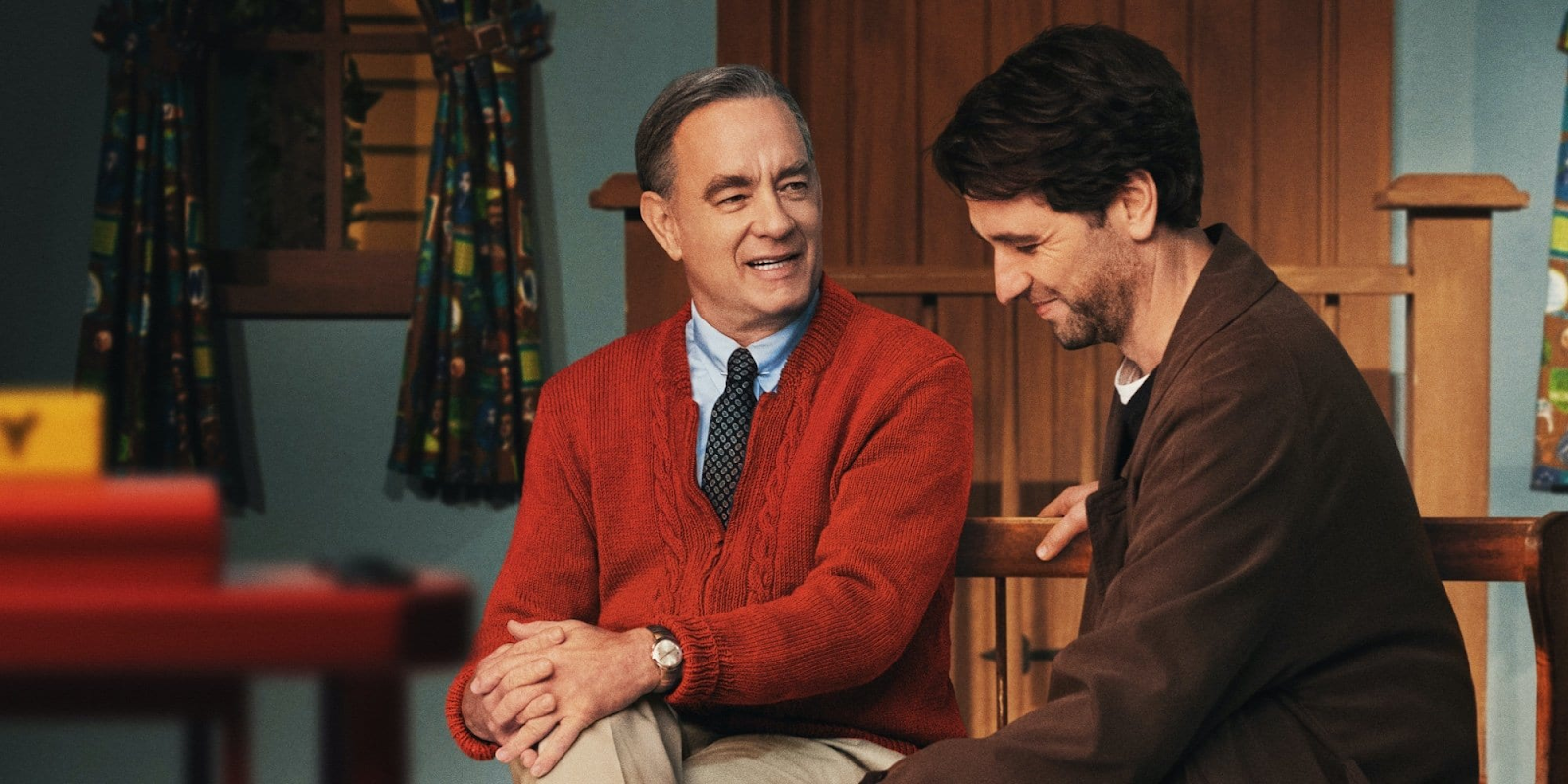 By Andrew Jenck
By Andrew Jenck
This year has been an emotional whirlwind to say the least; many of us going through remorse, frustration, etc. However, one thing has reemerged in in recent years that’s provided myself and many other levity: Mr. Rogers’ Neighborhood. Although intended for children, the TV series presented heavy themes synonymous with life and whose host taught the audience the emotions they would face. We’ve seen this “Rogerssance” with the documentary Won’t you be my Neighbor?, which I previously covered and called the most comprehensive oversight of Fred Rogers, what inspired him to do the work, and the lasting effect it’s had on us. The film was so comprehensive that I was skeptical of the historic drama A Beautiful Day in the Neighborhood, released a year later. How could it elaborate more on the man from the neighborhood? The answer: by focusing it on one of his neighbors.
A Beautiful Day is less of a biopic and more of a personification of “Can you say Hello?” by Tom Juno, a profile on Mr. Rogers and his legacy. Lloyd Vogel (who’s the film-equivalent of Juno) is a cynical journalist tasked to interview Mr. Rogers while his estranged father re-enters his life after a traumatic event and disoriented on being a father himself. Most of us know Fred was the real deal, and ultimately Vogel will see the truth and be spiritually guided. The twist is that the film somewhat confirms Lloyd’s suspicions that Rogers has something Fred and his wife Joanne feel uneasy at the term “hero, saint, and celebrity” because it puts him on a pedestal, making his kindness unattainable. One of the staples of the show was Rogers revealing how he could also get angry and could make mistakes but addressed the emotions and forgive.
Forgiveness is a core theme in which Vogel goes through a complicated journey in order to forgive both his father, Jerry, and himself. Important to note that Jerry is genuinely trying to improve himself, and actually earn his son’s forgiveness. Matthew Rhys presents Lloyd as a believable skeptic, struggling with his own anguish and emotions. Susan Watson’s Andrea isn’t solely defined as Lloyd’s wife and has her own ambitions and motivations for Lloyd to become a more caring father. Chris Cooper rides a thin line as Jerry between a man behind the times and trying to make up for past mistakes. The real stand-out is, of course, Tom Hanks as Mr. Rogers. His performance is nuanced in how he too has his own intensities but uses techniques of self-control and the warmth you would get from the kindly neighbor.
Director Marielle Heller presents the piece in fantastical realism (an oxymoron, I know) and incorporates hallmarks from the TV series, using clever transitions, model cities, and sentiment that make it a spiritual successor to Fred’s work. She sets the tone darker and focuses on complex feelings, awkward situations, and slowly rebuilding or restructuring relationships. The film’s color pallet will alter given the situation: gray and muted when focusing on Lloyd’s struggles, and colorful with Mr. Rogers but with an overtone of blue. It’s a more complicated piece than I might’ve expected.
We all experience struggles and emotional complexities regardless, especially during Thanksgiving, but we must look deep inside and know the feelings are really ours. Of course some people can’t be reasoned with but anyone who’s earnest deserves a chance. It is a struggle to work through anger and resilience to be compassionate, but it is doable. Banging the lower keys on the piano helps me, just as Mr. Rogers said. A Beautiful Day in the Neighborhood shows us even the most gentle person in the world had his own turmoil; he just dealt with it the best ways he could.


